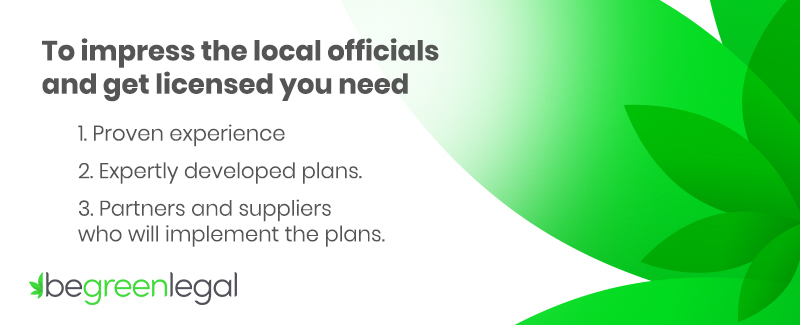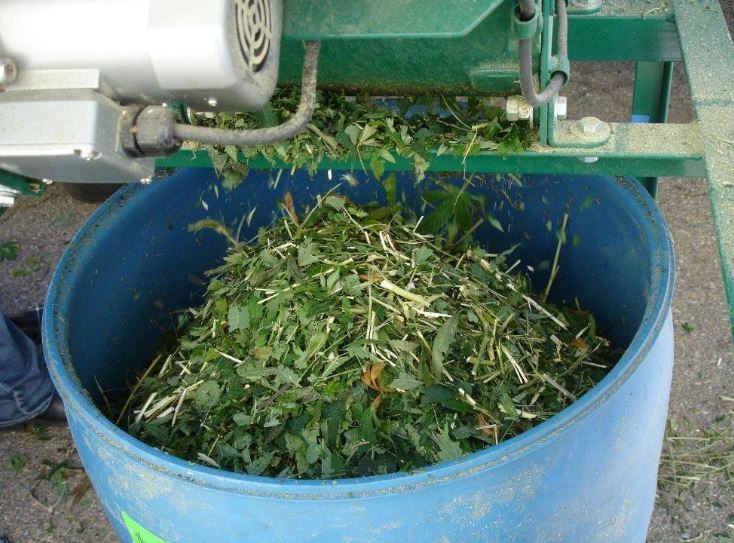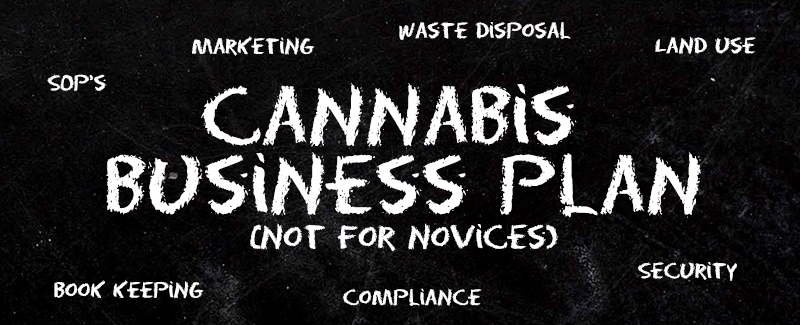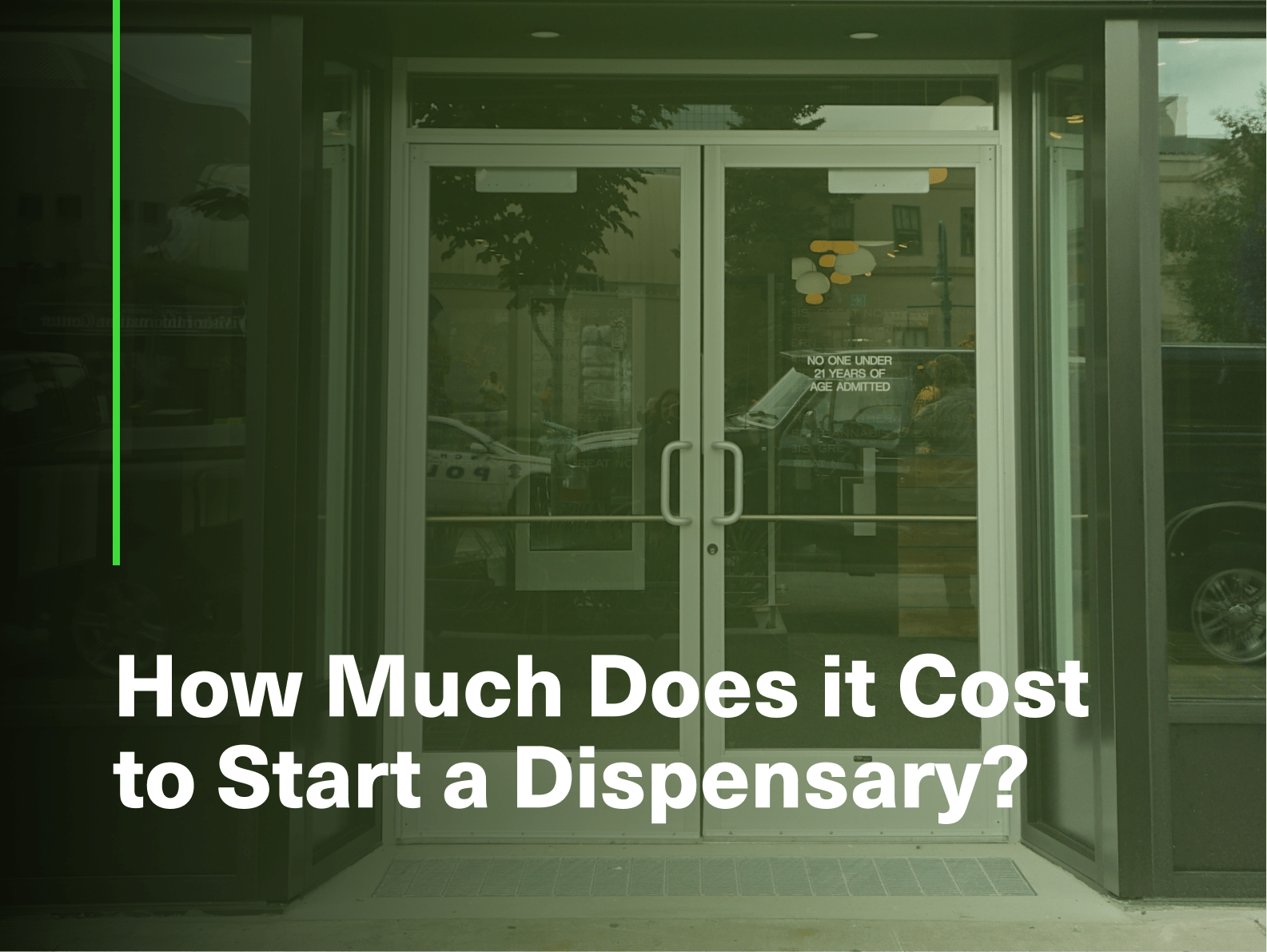Receiving local approval to open a cannabis business and then keeping your state-license takes a keen eye for detail, several interlocking plans and a ton of teamwork. With the right help though, it is very manageable and will produce a remarkable ROI over time.
As a leading cannabis consulting firm, we meet regularly with entrepreneurs looking to enter the new state-sanctioned cannabis industry. It doesn’t take long for the conversation to focus on two related points: how to get and keep the licenses and permits necessary to operate legally. In the states that have authorized commercial cannabis and issue licenses under either a medicinal or adult-use/recreational basis, elaborate cannabis laws are put into place at the state level to govern their overall program. While significant controls are also given to the local cities and counties to control where, which type and how many cannabis businesses will be given the opportunity to pursue this economic opportunity of a lifetime.
In two of the biggest emerging state markets, California and Michigan, less than one-third of the municipalities are allowing cannabis activities. The ones that do allow for some permitted activities are severely limiting the number of outlets or activities available when compared to the demand. Cities are receiving hundreds of applications for as little as 1-2 licenses in some of the most hotly contested areas. According to news reports, the City of Pasadena recently collected almost $1.5 M in non-refundable application fees for a handful of potential licenses.
So what does it take to impress the elected and appointed local officials or the consultants they have hired to evaluate your application? And once you clear the local hurdles, how do you show the state evaluators that you fully understand and can comply with the cannabis laws?
To sum it up, it takes documentation of the following:
- Proven experience as a business person, often with some cannabis or other similarly regulated industry experiences.
- Expertly developed plans across several areas of focus, including an overall business plan but often just as importantly are plans dealing with security, waste management, odor control, product safety, community relations, record keeping, human resources and much, much more.
- Identification and inclusion of expertise from proven partners and suppliers who implement these strategic plans once you are approved.
Simply put, it is not good enough to make promises that you will keep the product, community, environment and your employees safe. You need to prove you have done the research, developed comprehensive plans and selected the right partners to implement a very specific program that will fully comply with the cannabis laws. Governing bodies like the City Planning Commission and Council or the state’s licensing boards, such as the California Department of Public Health (CDPH)- will dig deep into your SOP’s, your premises design and workflow- wanting to know exactly how you will be doing business.
For an item like cannabis waste, they will need to know exactly where on the floor plan; this could occur during a site visit, you will be collecting and storing the material and under what security and surveillance systems. They will grill you on how it will be tracked internally and within in the state’s system and of course, how it will be responsibly disposed of in a compliant and environmentally-friendly manner. Additionally, they will want to know and see examples of your ability to audit your compliance with the processes and responsibilities you have described under the cannabis laws.
Consulting firms like BeGreenLegal, develop the impressive plans and programs that comprise winning applications and put their clients in a great place to run compliant businesses after licensure. Expert professional supply chain partners like Eco Waste Services provide a wide array of cannabis waste handling and disposal solutions. They also supply expertise in terms of planning and presentation of compliant solutions. This gives their clients the upper hand in terms of immediate opportunity as well as long-term success in a rapidly evolving and often tricky new industry.
While this admittedly sounds self-serving given our profession, I need to caution anyone looking to save money by DIY-ing (doing it yourself) their own applications to either a local or state agency. The application forms produced by the agency often look simple and pretty easy to navigate without professional assistance, but they are not for novices and the consequences of non-performance will derail your business before it even gets a chance. The application packets—that sufficiently answer the level of concern of most agencies—typically number in the hundreds of pages, filled with several components which themselves are often composed by technical experts. Please don’t be fooled by a simple checklist or a couple blank lines with an invitation to attach more if needed. Consult with experts that deliver to these agencies the level of professionalism that is needed to be trusted with a cannabis business permit or license.
Our friends at Eco Waste Services have some tremendous resources like Waste Checklist, Management Plans and Manifests available for you and stand ready to help develop and implement your plans. BeGreenLegal is here to help you craft your business plan and high-level strategy prior to even starting your venture as well as developing comprehensive application packages for both the local and state agencies that are needed to open your cannabis business.
____________________________________________________________________________
BeGreenLegal was invited to write this post for our friends at Eco Waste Services (https://ecowasteservices.com) based on their proven track record of helping entrepreneurs develop, submit and get applications approved at both the local and state levels. Their team is comprised of industry experts, land use professionals, project management ninjas and much more.
Chris Cahill (JD- Mich, MBA) has been helping business owners for over two decades in many ways including the creation of comprehensive, real-world business, management and marketing plans. For almost three years, Chris has worked with leading cannabis companies developing brands and relationships and getting and helping to keep them compliant while they take their businesses to the next level.







